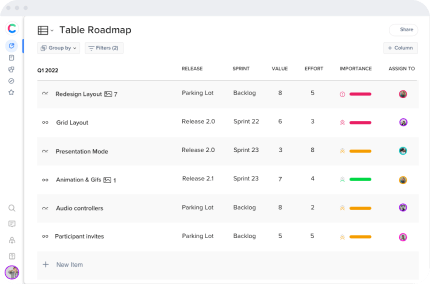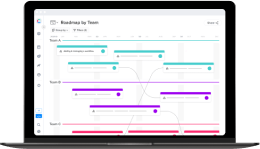What is a data product manager
A data Product Manager is an organization’s data authority that selects and manages a product’s data management software and has a profound grasp of machine learning techniques, AI, and all things technological.
A data product manager is identical to other product managers, except for one significant difference: they place data at the center of everything. However, it is also the responsibility of data project managers to create products and services based on advanced data-driven insights. It is also their responsibility to leverage the flow of data.
Why Should You hire a Data Product Manager?
It is not a new concept to use data to inform product design. In reality, customer research is one of the earliest stages of product development, and the results of this study contribute to creating the final product.
For the conventional product manager job, this is where the data’s value is realized — it is essentially a means to a goal rather than an end in itself. For a data product manager, on the other hand, data is used throughout the entire development process to inform decisions (and even beyond).
In recent years, as the world has gotten increasingly data-driven, the collection of customer insights has become more widespread as well. The data project manager’s responsibility is to discover a means to tap into these data streams within product features.
They are no longer simply tools to be employed in developing a feature but are instead fully embedded within the components themselves.
Data Product Manager vs. Product Manager
Product managers and data analysts have traditionally collaborated in gathering information for decision-making purposes, such as customer behavioral data, but the relationship ended after that. What exactly is the distinction between a product and a data product manager?
A data Product manager is responsible for developing ways to incorporate real-time data into a product’s core feature set as part of the product’s core feature set. A data product manager is responsible for developing ways to integrate real-time data into a product’s core feature set as part of the product’s core feature set.
On the other hand, A typical project manager’s responsibilities include:
● Backlog refining.
● Presenting new releases and customer development.
● Collaborating with other departments within the company
Understanding — and connection to — data distinguishes product managers from data product managers, even if there are many parallels between the two professions.
Both jobs will be responsible for nearly everything in terms of fundamental obligations.
On the other hand, a data PM must be able to bridge the gap between these two roles in a meaningful way, taking on the strategic responsibilities of the data analyst while also taking on the more tactical responsibilities of the product manager.
Here’s an example from the real world.
A product manager could create a feature that uses a database of previous GPS movements of customers to generate location-based recommendations based on those moves. Alternatively, a data product manager may tap into a data flow of real-time GPS data to make such suggestions on the fly rather than using a database.
How can a data product manager help your business?
How does this contribute to the overall product development process? Here are four fundamental ways in which a data product manager can contribute to the success of a product development team:
- Product teams may use the numerous data-rich solutions available by modern technologies, such as GPS, biometrics, and similar tools. Because of the availability of real-time data sources, new degrees of interaction and functionality may be added to products, enhancing the overall user experience and increasing their overall worth.
- This decoupling and integration of product development roles mean that data is no longer a compartmentalized one-use commodity but rather a real-time data stream that you, your management, and even the rest of the company can mine for insights.
- Because real-time data-driven insights can be prototyped and tested before being deployed, the product team no longer has to make educated guesses about how users will engage with their product.
- A data product manager reduces the likelihood of making decisions based on inaccurate or out-of-date information. The team’s decision-making becomes more proactive and less reactive due to having access to an unlimited amount of data insights.
Conclusion
There are several advantages to having a data product manager involved in the product development cycle.
As our understanding and utilization of real-time data continue to grow, the demand for product managers who understand how to use real-time data for a company’s benefit will also increase.


